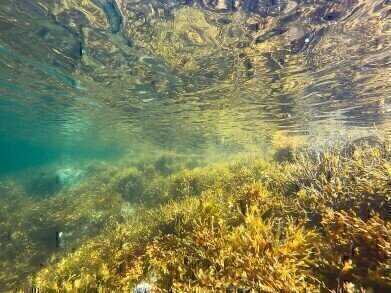Environmental Laboratory
What Are the Effects of Agricultural Pollution?
Nov 23 2022
As an industry, agriculture is absolutely crucial to the survival of the human race. Tasked with feeding billions of mouths on a daily basis, farmers and producers have turned to science and technology to optimise their operations and boost crop yields. While these techniques have been resounding successes, they have come with various causes, types and effects of contamination, entailing a hefty environmental price tag. Here are some of the most serious and widespread effects of agricultural pollution today.
Air pollution
The heavy duty machinery involved in farming the land – such as tractors, combine harvesters and threshing machines – spit out high volumes of polluting gases, such as carbon dioxide. Meanwhile, the spread of chemicals on fields can be blown away from the targeted area or else evaporate into the air, contaminating the local atmosphere. Similarly, the practice of stubble burning – which has been banned around the globe but is still fairly commonplace in the developing world – further contributes to poor air quality.
Global warming
The aforementioned emissions of CO2 not only endanger the health of local flora and fauna, but also directly contribute to climate change. At the same time, the proliferation of livestock around the globe emit significant volumes of methane into the environment, which is another extremely damaging greenhouse gas. By trapping the heat from the sun’s rays in the troposphere, these gases help to raise the ambient temperature of the planet. This leads to warming of the oceans, melting of the polar ice caps and rising sea levels, as well as more frequent and more intense extreme weather events.
Eutrophication
After heavy rainfall, agricultural run-off containing excess chemicals used in fertilisers and pesticides can be washed into nearby bodies of water. These substances, which include ammonia, phosphate and nitrogen, artificially alter the delicate balance of nutrients in the aquatic environments, thus placing pressure on local ecosystems by upsetting their equilibrium. For example, certain species such as algae can prosper, which in turn detrimentally affects others by consuming more oxygen and blocking out sunlight.
Contaminated drinking water
As well as endangering the survival of the aquatic species which live underwater, agriculture can also potentially damage human health, too. That’s because those aforementioned chemicals, alongside other contaminants such as the oils, metals and degreasing agents present in much farm machinery and the manure produced by livestock, can also seep into the soil and infiltrate groundwater reserves. Since the majority of drinking water intended for human consumption is drawn from such sources, the agriculture-water interface can become compromised.
Soil degradation
While chemical additives have a positive short-term effect on crop yields, they can, over time, accumulate in the terrain and jeopardise soil quality. This not only negatively impacts the potential of future yields by reducing optimal conditions for cultivation, but also kills off the microorganisms living in the soil itself, thus harming biodiversity. What’s more, monoculture farming methods and intensive tilling of the land also degrade the soil and lead to its erosion, which is bad for overall environmental health.
Digital Edition
Asian Environmental Technology 27.2 - April/May 2023
May 2023
In This Edition Business News - Celebrating The Life Of A Gas Measurement Industry Icon - A New Home For Gas Sensor Specialists - Envea Completes The Acquisition Of Hycontrol Ltd Environ...
View all digital editions
Events
Jul 02 2023 Albena, Bulgaria
Jul 04 2023 Cardiff, UK
Jul 05 2023 Johannesburg, South Africa
Jul 11 2023 Shanghai, China
Jul 11 2023 Lagos, Nigeria



















